Interview #21 Lynn Ferrari: "Human resources is such an amazing field because you can hire for talent and train for skill"
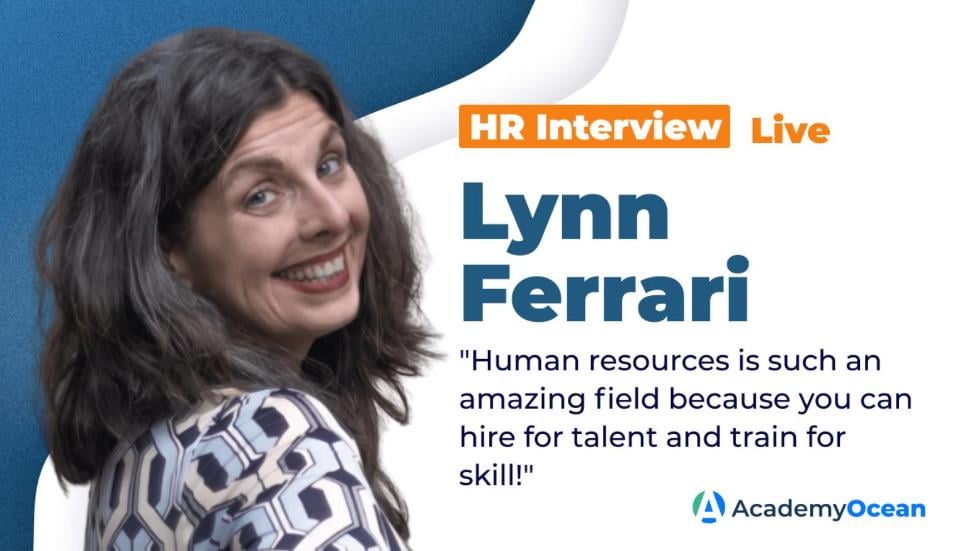
📌 Read the interview with Lynn Ferrari to find out how the person who wanted to become a Broadway dancer found herself in the HR field.
Hello everyone!
As you probably already know, we have decided to improve our series of interview blog posts. Now you can not only read the opinions of HR experts on various topics but also watch interviews online.
In our opinion, video interviews will help get more detailed answers to questions about the HR sphere that are of interest to our audience and get closer to HR specialists.
Today, we are going to have a talk with an Executive HR Business Partner, Lynn Ferrari.
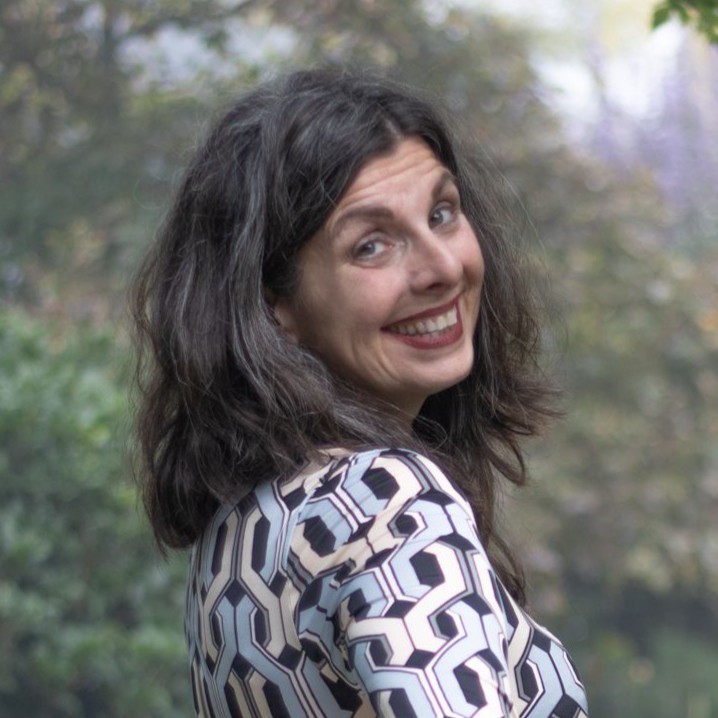
She is recognized for her deep business acumen, exceptional hands-on leadership, and building values-based cultures in financial services, retail, and technology organizations.
Her corporate and management consulting expertise includes maximization and growth of revenue and engagement by integrating talent, operations, total rewards, leadership transformation, datafication and technology.
At the end of the article, a recording of our interview with Lynn will be waiting for you.
AO: Hello! Nice to meet you, Lynn! Welcome to our online AcademyOcean studio.
L: Hello!I'm so very grateful that you found and invited me. I loved the questions you submitted already. I'm very excited.
AO: Awesome! So let’s start. Can you tell us something about yourself, maybe about some of your career achievements or just interesting facts that our audience should definitely know about you?
L: Thank you very much! I'm grateful to be here. So I have a background that I think is very common to individuals that start out in HR. I actually started out in the personnel division, which we now call administrative assistant. And that is where I began my career. Human resources is such an amazing field because you can hire for talent and train for skill. I have a 35-year career built on an act ground of all aspects of human resources, meaning in each discipline and training, development, compensation, etc. I have been the leader of those functions, both internally and corporations that are what we call fortune 500 organizations.
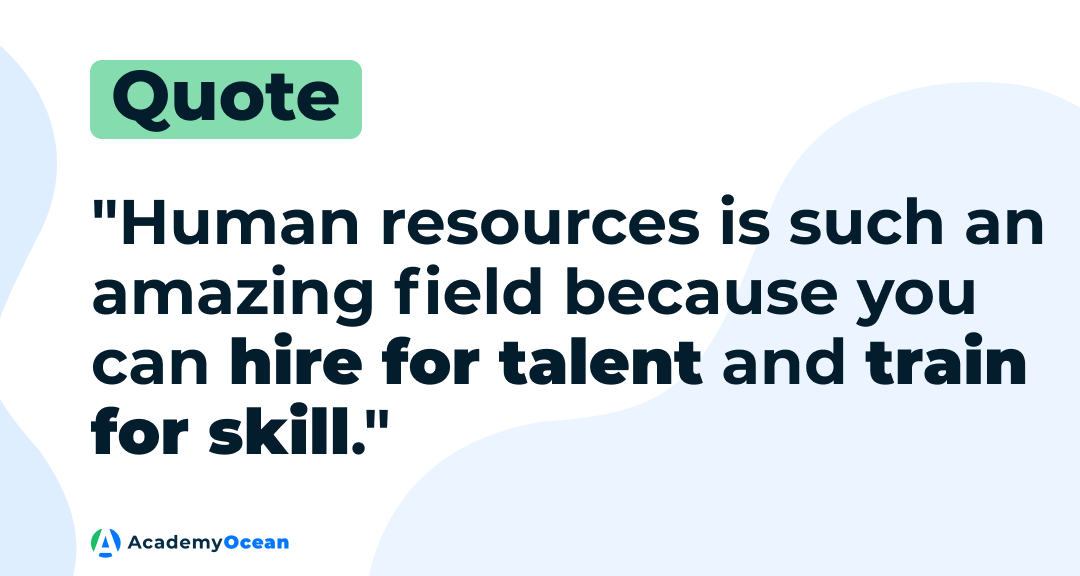
Then I've consulted global brands in this area such as Holland America lines and Amazon. I would say that my career evolved over those years. I think it was more of a squiggling line than a straight line up as most careers are.
I would say that my greatest achievements are the notes that I continue to receive from individuals that I've taught throughout my career.
They shared that the work we did together helped them become the professional they wanted. Even a level of satisfaction in their work or that they themselves went on to be able to lead.
I actually have one of my mentees' jokes that she will hold a sign at my funeral that says "all of Lynn's HR people." So I think that that's my greatest achievement. I've now had two HR companies. I have a firm called "Talent tools and Transformation." I am focused on talent culture and communication transformation. My focus is to re-imagine talent. And so I work with organizations in areas such as onboarding, training and development.
AO: Nice, Lynn. You have a really full life in the HR world. Everyone knows working with people now isn't so easy. What are the main difficulties you usually face working as an HR?
L: Yeah, It's a very good question. I believe that the difficulties we face come from the history of the function, which is that oftentimes depending on the culture of the organization. We may not always have what we like to call "a seat at the table." We're seen as more of an enabling function. We deliver training, we deliver payroll, we deliver things, versus a really true business mindset.
And as I just referenced, it's because we come from the personnel mindset, which is where we evolve, which was around: policy, procedure, compliance. Because when I create HR departments or train individuals to do so or coach, I remind them that at the core of it, HR is mitigating risk. So mitigating risk for an organization is HR's main function. We also are strategic partners and we are also people leaders.
So that is a difficult place to be sometimes when people don't necessarily directly report to you and you're more in an influencing role.
AO: I understand, thank you. And what about the future of this field? Where do you see HR in five years? Now it is a very hard time for all industries and of course, it will be changing very fast.
L: Absolutely. I would focus on two areas, talent and technology.
So back about 20 years ago, a global consulting firm McKinsey said, “There is a war on talent.” So there is globally a shortage of skilled labor. There is also a shortage of unskilled labor. So in the next five years, I believe that what we're going to see is more relationship community, event sponsorship type of talent development and acquisition that in addition to the traditional postings recruiting.
We're going to have to build more communities, for example, especially with the advent of social media. For example, if you like Starbucks, Starbucks has an opportunity in the next five years to evangelize that community for people that like to visit those stores, be a part of it, like the product, and really go deep in those areas.

So we're having a re-imagined talent in the next five years in a way that is deep in relationships, far more than the transactional part.
The second piece that is very exciting and I believe we will get there in the next five years, is the technology enabler.
And when I say technology, I'm not simply talking about the internet or the tools. AI - artificial intelligence, our ability to augment human capacity with machine learning that analyzes contextual and analytical data at scale will label us to tell stories about team dynamics, recruiting, simple things such as right now, AI tools that you can plug into your ATS system. And so it will curate the whole list. And instead of a recruiter having to look at 250 resumes, the AI tool will tell you, "here are the 50 people that meet your criteria", and they'll put them at the top.
Allowing, and this goes back to talent, allowing the talent analysts to be able to focus on the things that we want to do, which is to be able to talk about talent in the organization and go deep. But because we don't have the level of technology yet where you are absolutely in it, but as we get there in the next five years, it is going to transform our ability to become talent leaders truly. And all organizations in the five years need to be talent organizations, not just the responsibility of recruiting, to be able to go to my initial comment, which is about facilitating relationships.
So those two trends are going to be incredibly strong and actualized over the next five years.
HR evolution. Experts about the future development of HR.
AO: Ok, and talking about the nearest future. What do you think the main tools every HR should be using in 2021?
L: So an enterprise system that's integrated between your learning systems, your recruiting systems, your onboarding systems those are critical and required to be able to enable the organization to know where to have the right talent at the right time at the right place. That is critical.
And again, I will also call out the artificial intelligence pieces, whether it's about position descriptions, such as Textio, or if it's something like Clearly or Verify as an organization that does talent dynamics as well. Those are the tools that will be in our back pocket, just like policies and procedures were in the past. And technology will be to our toolkit. That is, I believe, going to be required. It's also lagging where most of the other organizations, marketing, finance, etc., all do use data.
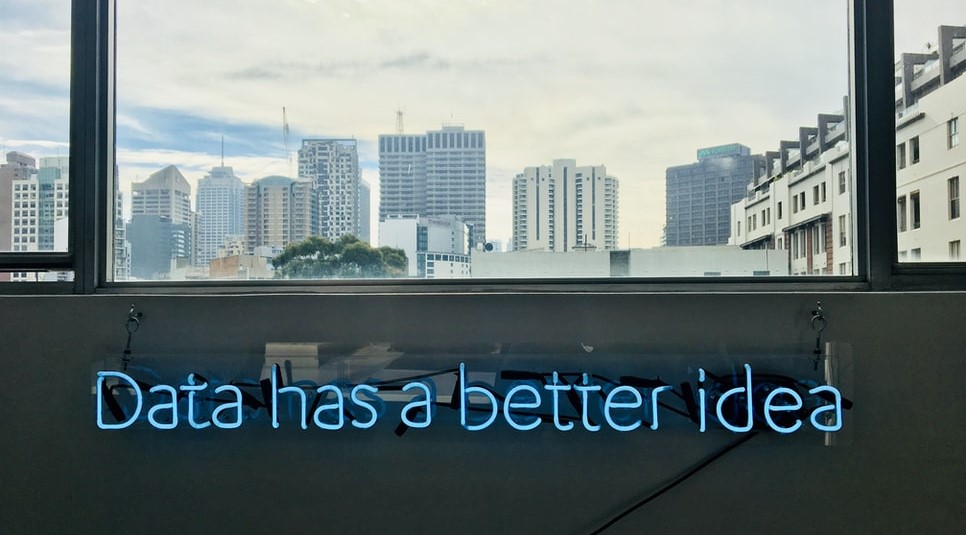
We want to use data and technology. We've been behind the curve in terms of getting it as well as integrating it. Because right now, in many organizations, it is still siloed. The learning models are different from the onboarding models. And even some of the early tools, they do integrate it, but not in a way you can leverage. And that's why companies such as General Electric in the past have put what we call proprietary software together. They've built it themselves. And so GE is a model of talent excellence. It always has been. And so I think being able to move forward with that is something going to be relevant.
AO: Okay. I got it. And what about onboarding? How does the onboarding process go into your company?
L: So I am a consulting partner at this point and I work with organizations to develop onboarding. I've also been a part of stellar onboarding organizations and then what I call tactical onboarding. So tactical onboarding is "Here's your desk, here's your email, here's your boss, here's the manual. Have a good time." That still exists.
When I say I've had an amazing onboarding experience, I will call out Starbucks, where we have what's called an immersion program. Of course, it does have all the bells and whistles of "Here's your email, etc.." But the first day you show up, when I was, their former CEO Howard Schultz literally would come on your computer with a little avatar and welcome you to the organization. And then you had a three-month plan of your function. You also met and immersed with business leaders and your organization.
You went to stores, you really onboarded and completely marinated in the brand and the company's business. You knew where your work went. And I believe that is the best in class of what onboarding is. The other piece I think is really important is that again, in the past, HR handled it, right? We went over to onboarding and the HR manager along with the hiring manager would do onboarding. We need to have that be fluid as a part of the still we could track the organization to move the individual from the key relationship they had during recruiting to eight introductions to the next piece.
And so I see there's going to be much more of an ecosystem than an HR function.
AO: A very cool view of the onboarding process. We should definitely study the Starbucks onboarding system in detail. It is fascinating.
And what about traditions? Does your company have any interesting or maybe extraordinary traditions?
L: I cheer. I have created this tradition. I believe that people do work when they're inspired, that the work is always the work, but there's the work of living and being inspired. I believe people do business with people and that people do business with people they like. And when you're inspired, you feel good, right? It feels good in your body.
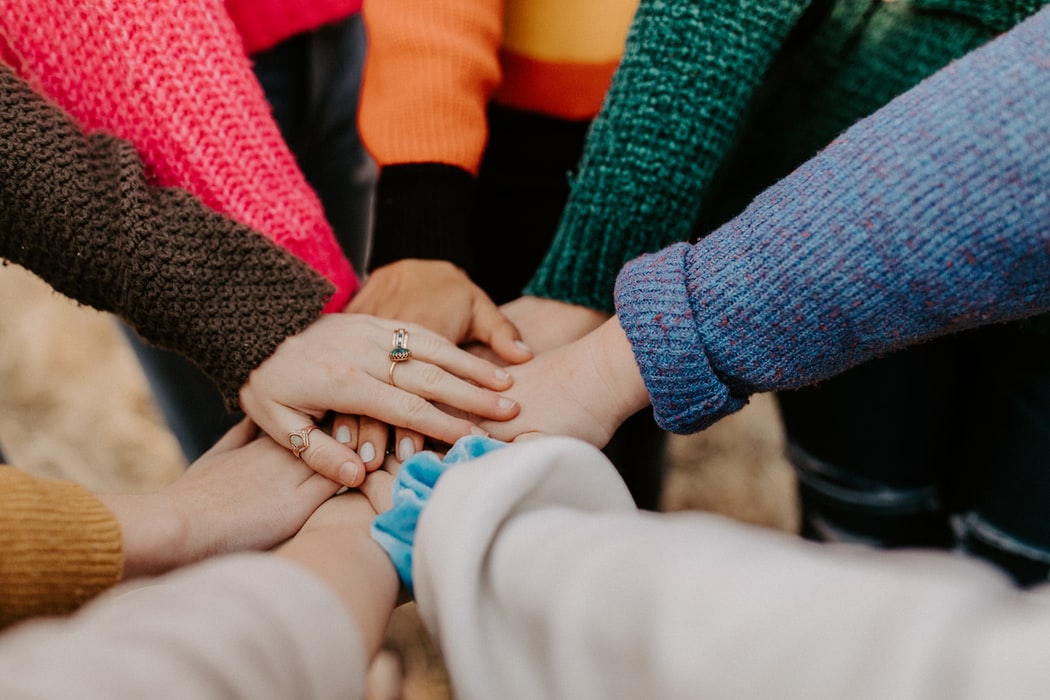
And you also believe it speaks to engagement. So mine is a tradition of cheering. Whether I'm internal or as a consultant, I actually make up cheers for organizations. And it's for a variety of reasons and pushes people into some discomfort sometimes. But it is a very good piece. At Starbucks, one of the traditions, they do coffee tastings and that's a tradition that we have. So, I think traditions are really important, but that's my personal one.
AO: Nice, I should share this idea with my boss.
Lynn, I think there is a person who influenced your professional choice. Can you name maybe one or several HR experts whom you highly appreciate or take as an example? But it can be not an HR professional. It can also be someone from your family, for example.
L: Absolutely. So when I grew up, I wanted to be a Broadway dancer and I wanted to be a social justice lawyer. I actually ended up in human resources and I joke that it's the best of both worlds because it is about the law, but it's also about the jazz hands of performing, right? You need to engage people and move them along.
I happened into a secretary role in human resources, and that's how I ended up there. And you know, one of my favorite things is nobody ever grows up and says, "I want to be an HR," but they should, because it's an amazing field. It's always different. It's always challenging, but I digress. You asked me about some mentors or how and why I got in there. That's what it was in there. I was very, very fortunate along the way that people saw my potential and talent and continue to groom and inspire me. Internally in my career, I would say there's probably a couple of people.
Linda Clark-Santos. When I worked at Washington mutual, she was an incredible leader who took me to lunch and said, "I see something in you. You should be an executive in HR. And here are the things that you should do."
Maura Stevenson, who is the CHRO here in the United States and, as well, Temre Jenkins, was my manager at Starbucks, really helped me learn how to influence in a different way. And I would also say Sandy Gould, who is the senior vice president over leadership at Verizon, formerly Yahoo. Also inspired me. Externally, Patty McCord, who is the former Netflix head of HR is absolutely one of my inspirations because she focuses on treating people like people, treating them with respect, and telling them the truth. "Let's get out of the policy and procedure world and let's treat people as adults."
AO: And, what is the most important professional development advice you have ever got?
L: Never say no. Because you can always figure it out and you can always learn. And oftentimes, we stop at our barriers in our mind that we think, "I can't do that," "That's too big for me." So always say yes, and then figure it out, engage others. And it's one of the best career advice that I ever had. I would say the other career advice was "Hire for talent, Train for skill," and that I learned from Linda Clark Santos as well. And that really broadens everything, you know, quite a bit. The last one I would say, which I obtained through Washington mutual as well, was "Be amazing by Being Yourself".
AO: Yes, it’s true. I absolutely agree with you. And the last question, a relaxing one.
What were the funniest or maybe unusual incidents during your HR practices? Because every HR with whom I interviewed told me many funny moments, I think every HR person has them. So what was yours?
L: Oh, okay. The first one that comes to my mind includes Sandy Gould, who I mentioned. So we were in executive recruiting and he had to have an immediate meeting with one of the senior executives and that he wasn't prepared physically. It was a Friday. We really weren't. You know, it was more of a casual Friday. So he quickly runs into the bathroom to shave, gets blood on his shirt, comes into the office, and like, "What am I supposed to do?" I grabbed the person next to me and said, "You, Your shirt, Give me your shirt." And we switched out shirts. We cleaned Sandy up and we sent him along. So I think that was one of the more interesting and fun incidents.
AO: Hahaha, sometimes such inconvenient things happen, but that's life.
Okay, Lynn, it was a really brilliant and very interesting interview. I'm very glad that I met you exactly because you are a very shiny and very kind person. So I am very glad to have an interview with you today. I wish you all the best in your career and, of course, good health because now it is the most important thing.
L: Same and absolutely to you! You have given me such a great opportunity to start my day this way. So thank you!
Watch the full video interview here 👇
That's all for today, friends. See you at the next interview!
In case you would like to ask your own questions, write them down in the comments. Also, if you want to read an interview with a particular person, let us know.
Learn more about LMS 2.0 Platform for employee training.
If you want to learn more about the HR field, find a lot of useful content, join the most secret HR group.
Take care 😇